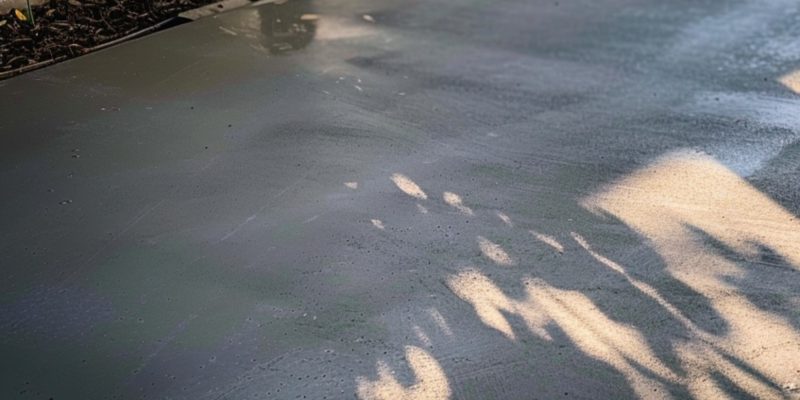Understanding the minimum thickness for concrete is essential for ensuring your home’s safety, durability, and compliance with building standards. Let’s get into the nuts and bolts of making your concrete projects rock-solid, with insights that keep you informed and prepared.
Minimum Thickness of Beams
Beams are the backbone of your home’s structure, supporting floors and roofs to keep everything upright and secure. The right thickness is critical; too thin, and they might fail to support the weight they’re meant to bear, leading to structural issues.
Beam Thickness
For residential beams, a general rule is to maintain a thickness that ensures stability and strength. Typically, this means beams should be at least 6 inches thick, providing a good balance between material efficiency and structural integrity.
Minimum Thickness of Columns
Columns act as the sturdy pillars of your home, crucial for supporting the weight of the structure above. They must be sufficiently thick to prevent buckling or undue stress, ensuring long-term stability.
Column Thickness Basics
In residential settings, columns generally need to be at least 8 inches thick. This thickness helps them withstand the loads from the building without compromising safety or durability.
Minimum Thickness of Foundation
The foundation is essentially the base on which your entire home rests. Its thickness is paramount in providing a stable and durable platform for the rest of the structure, especially in varying soil conditions.
In varying soil conditions, the foundation provides a stable and durable platform…
Foundation Thickness Guidelines
For most homes, a foundation thickness of at least 8 inches is recommended. This ensures a solid base capable of supporting the house and resisting environmental stresses.
Minimum Thickness of Concrete Slabs
Concrete slabs come in various types, each serving different structural and aesthetic purposes in residential construction. The minimum thickness varies depending on the type:
- Drop Panel Slab: Usually requires a thickness of about 5 inches, enhancing strength at column connections.
- One-Way Slab: Generally around 4 inches thick, suitable for lighter loads and spans.
- Two-Way Slab: Often needs to be at least 5 inches thick to distribute weight more evenly.
- Ribbed Slab: Features ribs spaced at regular intervals, with a minimum thickness of 2.5 inches for the top slab portion.
- Slab on Ground: Typically 4 inches thick, providing a solid surface for flooring in homes.
Minimum Thickness of Walls
For walls, a minimum thickness of 4 to 6 inches is common, depending on whether they’re load-bearing or not. This ensures sufficient strength for supporting the house and resisting environmental elements.
Minimum Thickness of Concrete Reinforcement
Reinforcement within concrete, like rebars or wire mesh, doesn’t have a “thickness” in the traditional sense but is crucial for structural integrity. The spacing and size of reinforcement materials vary based on the concrete element and its load-bearing requirements.
Standards by American Concrete Institute (ACI)
The American Concrete Institute (ACI) plays a crucial role in shaping the standards for residential construction, offering guidelines that extend well beyond merely defining the minimum thickness for concrete elements.
These guidelines cover the quality of concrete, proper reinforcement use, and construction techniques, all aimed at ensuring the safety, durability, and compliance of your home.
For anyone involved in building or renovating, becoming familiar with the ACI’s comprehensive standards is essential. They not only specify the requirements for various structural components but also share best practices to avoid common construction errors.
NOTE
Adhering to the ACI guidelines means investing in your home’s longevity and structural integrity, ensuring that every concrete element is constructed to stand the test of time and environmental challenges.
Conclusion
Understanding the minimum thickness for various concrete elements in your home is just the beginning. By following these guidelines and adhering to the broader standards provided by the American Concrete Institute, you’re laying the groundwork for a safe, durable, and compliant home. Whether you’re renovating or building from the ground up, keeping these principles in mind ensures your home stands strong for years to come.
Frequently Asked Questions
What is the minimum thickness required for concrete?
The minimum thickness required for concrete varies depending on the application. For structural elements like beams and columns, it typically starts at 6 inches. Foundations require at least 6 inches of thickness for stability, while concrete slabs on grade are commonly 4 inches thick in residential projects. It’s crucial to adapt the thickness based on the specific needs and loads of the construction project.
Is 2 inches of concrete enough for a walkway?
No, 2 inches of concrete is generally not considered enough for a walkway. Most experts recommend a minimum thickness of 4 inches for concrete walkways to ensure durability and resistance to cracking. Thicker concrete might be necessary for areas with heavy foot traffic or loads.
How thin can concrete be applied?
Concrete can be applied as thin as 2 inches, but this is usually for non-structural purposes like overlays or repair work. For structural applications, such as slabs or foundations, the thickness increases significantly to ensure strength and stability. Always consider the specific requirements of your project when determining the appropriate thickness.
What is the minimum thickness of concrete to prevent cracking?
To prevent cracking, the minimum thickness of concrete slabs on the ground, like driveways or patios, should be at least 4 inches. Adequate thickness, along with proper reinforcement and jointing practices, helps manage the natural shrinkage of concrete and minimize cracking.
What is a good concrete thickness?
A good concrete thickness for residential construction projects, such as driveways, patios, and walkways, is typically 4 inches. For structures bearing more substantial loads or in areas with harsh weather conditions, increasing the thickness to 6 inches or more can enhance durability and longevity. The key is to balance the project’s structural requirements with practical considerations like cost and site conditions.

